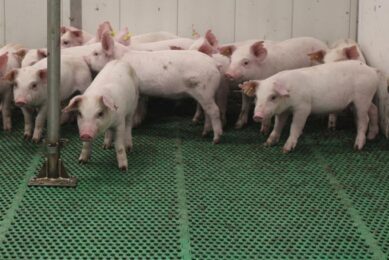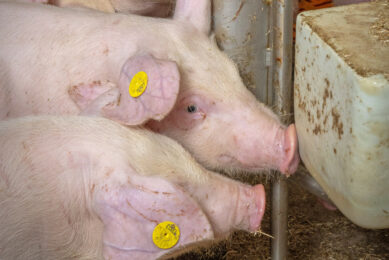Pork Checkoff advises producers/ workers in contact with pigs to get vaccinated

As the United States enters another flu season, the Pork Checkoff is advising producers, farm personnel and others who have contact with pigs to get the seasonal flu vaccination as soon as possible to help protect human and pig health.
Dr. Lisa Becton, director of swine health for the Pork Checkoff, said, “It’s always wise for producers and swine farm workers to reduce the risk of getting sick and bringing the flu to the farm or workplace by getting vaccinated. Also, it fits perfectly into the industry’s ‘We Care’ approach to protecting employees, animals and public health.”
©
According to the U.S. Department of Health and Human Services, the influenza vaccine supply is plentiful this year. All people over the age of 6 months should be immunized. At-risk groups – pregnant women, people who live with or care for children younger than 6 months of age, healthcare and emergency medical services personnel, those with chronic health disorders or compromised immune systems – should consult their physician before getting any vaccination.
©
In addition to getting vaccinated, Becton recommends taking other steps to reduce the spread of infection among workers and of the pigs with human-influenza viruses. This includes modifying sick-leave policies to encourage workers to stay away from the farm if they are suffering from acute respiratory infections.
“Virus shedding is at its peak when the clinical illness is most severe, but people may remain contagious up to 24 hours after symptoms stop, usually three to seven days,” she said.
©
Good building ventilation and good hygiene also will help reduce transmission of flu viruses.
“To prevent pigs and humans from other species’ influenza viruses, producers also should look at bird-proofing their buildings, protecting feed from birds and enforcing biosecurity practices, such as the use of farm-specific clothing and footwear,” said Becton. Additional biosecurity protocols can be found at www.pork.org using keyword biosecurity.
©
“A good website to reference for flu-related information is www.flu.gov,” Becton added.©”Also, the Pork Checkoff has a factsheet on influenza, ‘Influenza: Pigs, People and Public Health,’ that offers some good basic information.”
©
Source: porg.org
©
©
©











